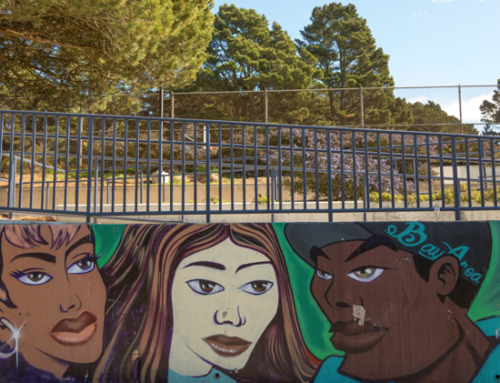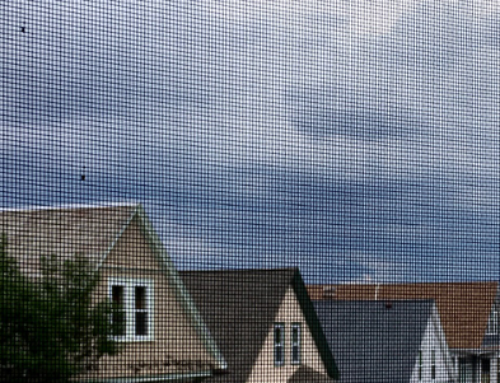Secret sociality now carries a whiff of resistance. Before Covid-19 had fundamentally reorganized the world in which they lived, they were young, able-bodied men. You’d spot them selling rosaries by St. Peter’s Square and pulling god-awful shifts at Abu Dhabi airport. They hovered at the foot of the Eiffel Tower. Flowers? Selfie Sticks? Day in and day out, in sentences peppered with Bangla, Sylheti, and French, they beseeched a motley lot of indifferent tourists. Sometimes they were aerially photographed crammed on a trawler on the Mediterranean off the coast of Libya.
Once in Italy, they sold yo-yos that burst into red, blue or green with each spin. The blinking LED lights tore into the dark of the sky above the Duomo di Firenze. Some days the mini performances were wasted on the weary travelers. The gelato stand diagonal from the yo-yo seller made a killing though. Summers in Europe were getting hotter and hotter. On nights like these when the heat lured the tourists away from the plaza and to the lull of air-conditioned hotel rooms, the men spoke about the past and the future over sweet tea and cheap beer. Later, in hushed, sleepy tones, they chatted with their parents, wives, friends, in-laws, brokers, and kids. Lit-up WhatsApp screens covered the stuffy room in soft, greenish haze.
That was before the pandemic.
Even before the fateful year ended, they were all back in Bangladesh. Not just from Europe, but everywhere. For months they lived off savings until not much was left. 78,000 men and women returned from 26 countries since Covid-19 wreaked havoc in an unsuspecting world. They thought they had fled the microbe, which surfaced in due time in their part of the world. The home country had sent out special flights. Upon arrival and before being herded to the make-shift quarantines, they stole hugs from loved ones. It had been too long.
Eminent citizens debated their role in importing the illness on television talk shows. An already-anxious middle-class was all riled up. Why were we letting them in? Why were they allowed to see family before isolating? Do they even know what isolation means? Progressives praised them as “remittance soldiers.” At 37.18 billion USD, didn’t Bangladesh boast a record high in foreign currency reserves in 2020, despite the pandemic? On the ground, they were not valiant warriors but vectors of disease, unsafe and oddly disloyal. Now that they were back, they deigned to complain about the lack of proper food, health checks, humanity? Entitled royalty, they were; “Nababzada,” that’s what a minister of the government called them.

A Bangladeshi store-front in Italy. Photo taken by my Venetian friend, Thomas Newbold
Parallel, hidden worlds of resistance flourished where those targeted by an invasive border regime looked after and out for each other. Within months fake Covid-19 negative certificates put them on international flights. Hordes were tested positive on arrival on foreign land. Flights were postponed, contracts cancelled, and visa restrictions even more stringent. Access to Schengen territories was no longer an option. The message from the outside world was clear: Stay in one country; preferably your own.
Bangladesh, indeed, the world, is a different place now. Thanks to a post-pandemic reshuffling of the economy and the hyped-up humanitarianism of the global elite, they were welcomed back into the workforce. Bangladesh has been courting its powerful neighbors, China and India, for vaccines. The two had been at a face-off on this and other issues for years. Both ran clinical trials, but the political stalemate kept them out of reach for ordinary Bangladeshis for a long time. The masses were still suspected of contagion. The virus has been tamed but how to erase that taint of poverty? The former migrant workers are allowed to labor but not socialize. This despite international cooperation and foreign aid that made life more regulated, perhaps even comfortable. Humanitarian drones, closed-circuit TV cameras, and the latest contact-tracing software donated by the EU and a particularly gracious Jeff Bezos brought sociality under the aegis of security. The world hailed the post-Covid GDP growth in this part of the globe.
Unsurveilled conviviality may be a thing of the past, but its memory percolates deep in the muscles. Lungs cleansed by years of covering the face long not just for nicotine, but everything else that came with it – the timepass on the side of the road, the honking and cussing, and the clouds of smoke of belching trucks. It is then that clandestine teashops surface as sites of transgression, of a muted effervescence. Rebellion would be too far-fetched, too optimistic. Men carrying blurry reminiscences of far-away places – Sweden, Lebanon, New Zealand – vanish into the thickets at the edge of their villages. In the dark of night, underground “tea dealers” crop up like shadow puppets. In this space of masculine jouissance, a drink of tea, perhaps a puff from a roll or two of bidi making the rounds gives one the rush of a righteous fugitive. Like the abundantly available but officially scoffed at yaba pills of yore, hot, sweet tea made in old, sooty kettles with frothy milk is the new intoxicant, auratic in its illegality. It lures them into its world, a rickety frame of bamboo. They talk, laugh, gossip, and gripe. No masks, no questions asked.
They have learned how to avoid the patrolling guards and the gaze of the hovering drones. The forensic architecture in place to forestall potential microbial attacks aims to be ubiquitous. But like all apparatuses of seeing, it comes with its share of blind spots. The technologies are not a hundred-percent functional in the muggy summers and the wet monsoons. Nor is the intricate village topography amenable to accurate GPS imaging. With a rigorous management of human mobility and the exclusive use of renewable energy (a precondition for foreign funds), the countryside is lusher than ever; at times, even impenetrable. Nature is on their side.
Public protest is a thing of the past. The post-pandemic national order has made that familiar genre of resistance obsolete. Can’t blame it on the virus though. Bangladesh had seen more collective protests at the height of the pandemic than most places. First came the garment factory workers. Hundreds of them blocked highways and staged sit-ins for wages and bonuses – all overdue for months. Reliant on a late-liberal consumerist world order, the global supply chain has been in shambles. The workers, as always, were the first to go. And speaking of global, the jute mill workers were not far behind either. Bangladesh’s most precious commodity of export, the jute was once nicknamed “the golden” fiber. That too fell out of favor. With it went the state-owned factories. The workers were on hunger strike. Then came the activists. They objected to the alarming rise in persecution of those who spoke or wrote against the mismanagement and corruption in pandemic times. As if free speech were deadlier than the virus. For many who were picked up, disappeared, or imprisoned, that’s exactly how it was.
But that too was before the pandemic ended.
This is a new world. One shouldn’t call it a dystopia. Most Bangladeshis don’t. For them, this is a step closer to their home morphing into Singapore, that tiny, showy, immaculate fantasyland of a country. The men who used to daydream of the end of the pandemic, whose immigrant souls itched to earn in euros, riyals, and dollars, are now settled. Or, so it would seem. It is only on moonless evenings that they slip away to have tea with other men. Their voices no more muffled by masks but barely louder than a whisper so as not to disturb the spirit. The spirit of the law. Let’s just enjoy the tea, shall we, they say to themselves. That’s enough for now. For now, at least.
Acknowledgments. This essay was inspired by my conversations with Abu Ahasan, a fellow anthropologist of Bangladesh.
Cite as: Chowdhury, Nusrat S. 2020. “A Storm in a Tea Cup.” In “Post-Covid Fantasies,” Catherine Besteman, Heath Cabot, and Barak Kalir, editors, American Ethnologist website, 19 October 2020, [https://americanethnologist.org/panel/pages/features/pandemic-diaries/post-covid-fantasies/a-storm-in-a-teacup/edit]
Nusrat S. Chowdhury is Associate Professor of Anthropology at Amherst College. She writes on protest, popular sovereignty, and political communication. Her first book, Paradoxes of the Popular: Crowd Politics in Bangladesh (2019), is an anthropology of crowds. Her current book project explores the concept of sacrifice in relation to development megaprojects in Bangladesh by looking closely into the role and the ruse of language – of rumor, policies, politics, and international law.




